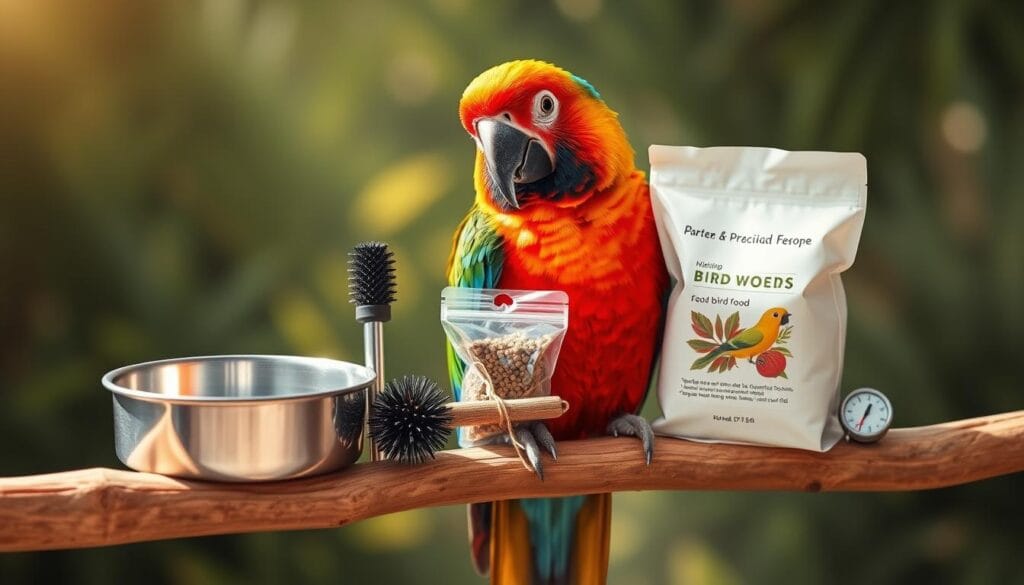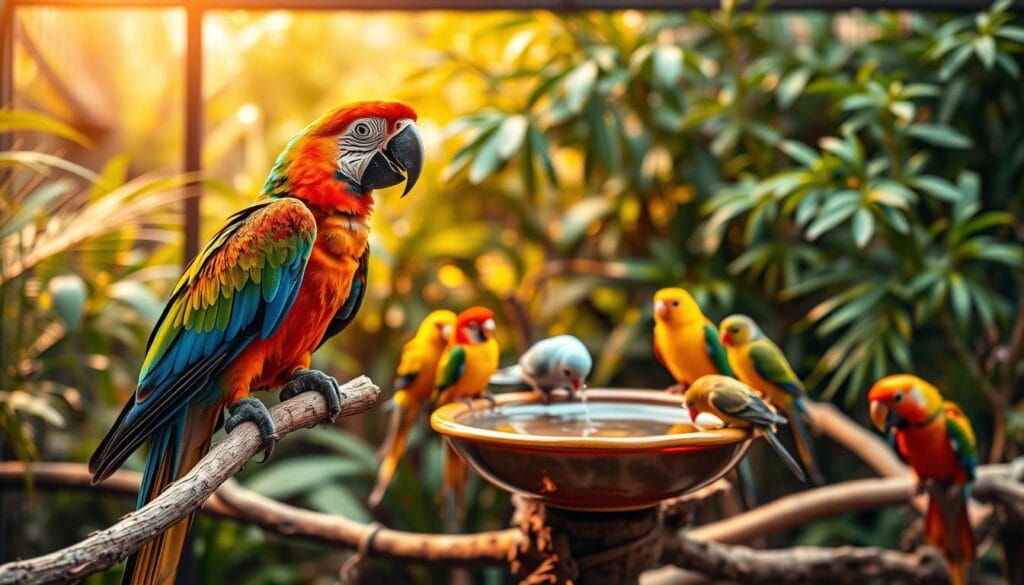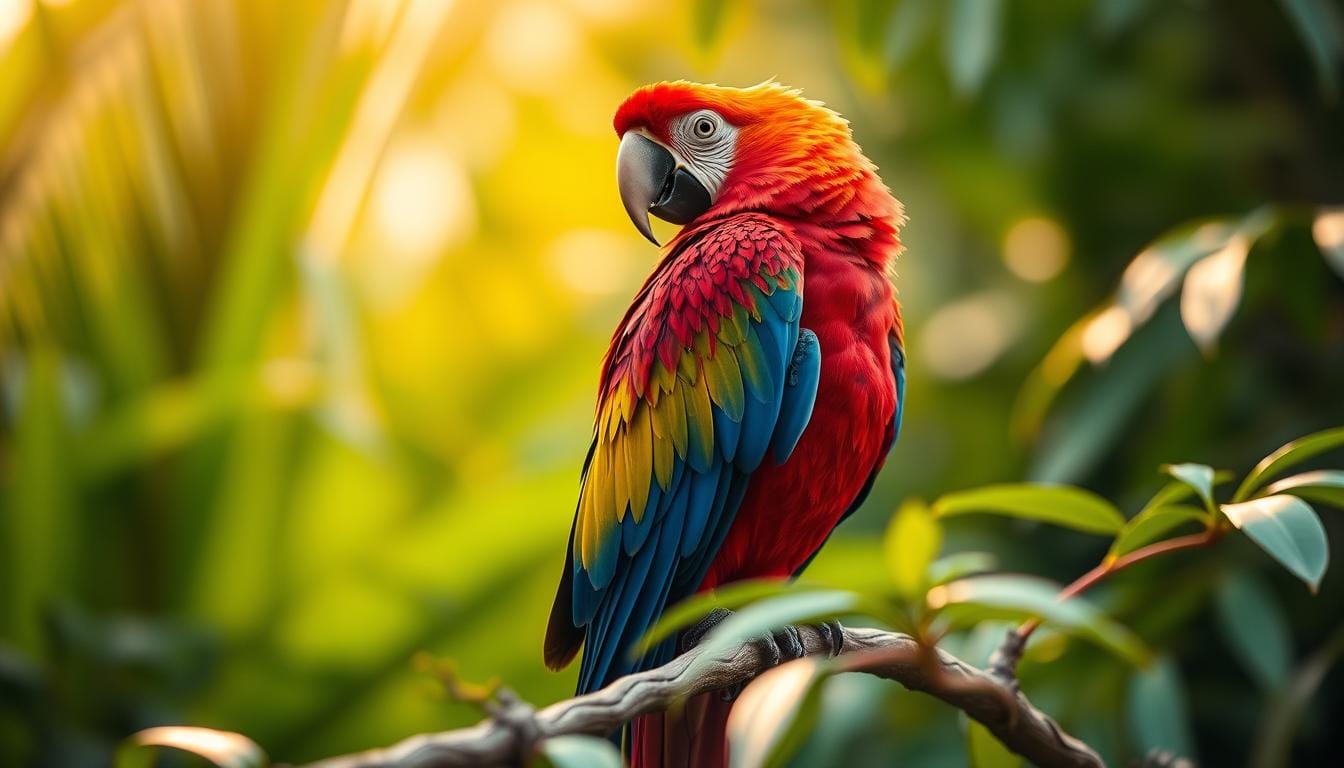Have you ever wondered how long your feathered friend might share your life? For many, bringing a parrot or macaw into their home is more than just acquiring a pet—it’s about forming a bond that can last a lifetime. These remarkable animals are known for their intelligence, vibrant colors, and the unique ability to connect with their owners. But How Long Do Parrots and Macaws Live?
Parrots, depending on the species, can live anywhere from 15 to over 50 years. Some, like the blue-and-gold macaw named Charlie, have even reached an astonishing 114 years. In captivity, with proper care and attention, parrots often outlive their wild counterparts due to better living conditions and regular veterinary check-ups. However, this long lifespan comes with a significant responsibility. Owning a parrot is a commitment that requires careful planning, dedication, and a deep understanding of their needs.
Whether you’re considering a small parakeet or a majestic African Grey, it’s important to understand that these birds are not just pets—they’re long-term companions. Their lifespan varies greatly between species, with smaller birds like cockatiels living around 15-30 years, while larger parrots can easily surpass 50 years. This longevity means that owning a parrot is a decision that can impact not just your life, but potentially the lives of your children or even grandchildren.
Table of Contents
How Long Do Parrots and Macaws Live: Key Factors and Insights
Understanding the lifespan of your pet bird is crucial for any owner. Whether you’re bringing home a small parakeet or a vibrant macaw, knowing how long your feathered companion might live helps you prepare for the journey ahead.
Parrot and Macaw Lifespan Averages
Small parrots, such as budgies and cockatiels, typically live between 8-15 years. Larger species, like macaws and African Greys, can thrive for 25-50 years or more in captivity. These averages highlight the varying needs of different species.
Influence of Health, Diet, and Environment
A balanced diet is essential for a long, healthy life. A mix of high-quality pellets, fruits, and vegetables supports overall well-being. Mental stimulation through toys and social interaction also plays a key role in preventing stress and behavioral issues.
Regular veterinary checkups are vital for early detection of health issues, ensuring your pet bird lives a full life. By focusing on diet, environment, and mental enrichment, you can help your bird thrive and enjoy a long, happy life.
Essential Care Tips for Your Exotic Birds

Are you ready to give your feathered companion the best life possible? Providing the right care ensures your pet bird thrives and enjoys a long, healthy life. Whether you have a vibrant macaw or a charming parakeet, understanding their needs is key to creating a happy home.
Balanced Diet & Nutritional Needs
A strong, healthy life starts with a proper diet. While seeds can be a treat, they shouldn’t be the main course. High-quality pellets should make up 60-70% of your bird’s diet, supplemented with fresh fruits and vegetables. Avoid toxic foods like avocado and chocolate, as they can harm your pet. A balanced diet supports energy, feather health, and overall well-being.
Hydration is also crucial. Ensure your bird always has fresh water, as 60% of birds in captivity may not get enough. Regular vet checkups can catch issues early, helping prevent serious health problems.
Creating a Safe and Stimulating Environment
Your bird’s cage should be a spacious, safe space. For larger birds like macaws, aim for a cage at least 4 feet wide and 6 feet tall. Ample room to fly and exercise is essential for physical health. Keep the environment stimulating with toys, perches, and regular social interaction to prevent boredom and stress.
Rotate toys every few days to keep things interesting and encourage mental enrichment. A clean, well-maintained cage is vital for your bird’s health, so clean it at least once a week. With the right care, your bird can live a happy, healthy life for many years.
Improving Your Pet Bird’s Lifespan with Strategic Care

Strategic care plays a vital role in extending your pet bird’s life. By implementing a few simple yet effective practices, you can ensure your feathered companion enjoys a long, healthy life.
Routine Veterinarian Check-Ups and Mental Enrichment
Regular veterinary appointments are essential for maintaining your bird’s health. These check-ups help identify potential issues early, preventing them from becoming serious problems. A balanced diet and a stimulating environment are also crucial. High-quality pellets, fresh fruits, and vegetables should form the core of your bird’s diet, while interactive toys and social interaction keep their minds active.
Creating a safe and spacious living area is another key factor. A large cage with ample room to fly and exercise ensures physical health. Securing potential hazards and ensuring enough sleep also contribute to a longer, happier life for your pet.
By combining professional veterinary care with proactive owner intervention, you can significantly extend your bird’s lifespan. Learn more about creating the perfect environment for your pet bird.
Conclusion
As you consider bringing a parrot or macaw into your home, remember that their care is a journey that requires dedication and attention to detail. The information shared in this guide highlights how proper diet, a safe environment, and regular veterinary check-ups can significantly impact your pet bird’s life.
By focusing on these key areas, you can help your parrot thrive and enjoy a long, healthy life. Whether you’re caring for a small parakeet or a vibrant macaw, the principles remain the same. A balanced diet, a spacious cage , and mental stimulation are essential for their well-being.
Owning a pet bird is a long-term commitment that can bring immense joy. Take the time to review the strategies outlined here and apply them thoughtfully. If you ever have concerns, don’t hesitate to seek professional advice to ensure your feathered companion lives a happy and healthy life.

